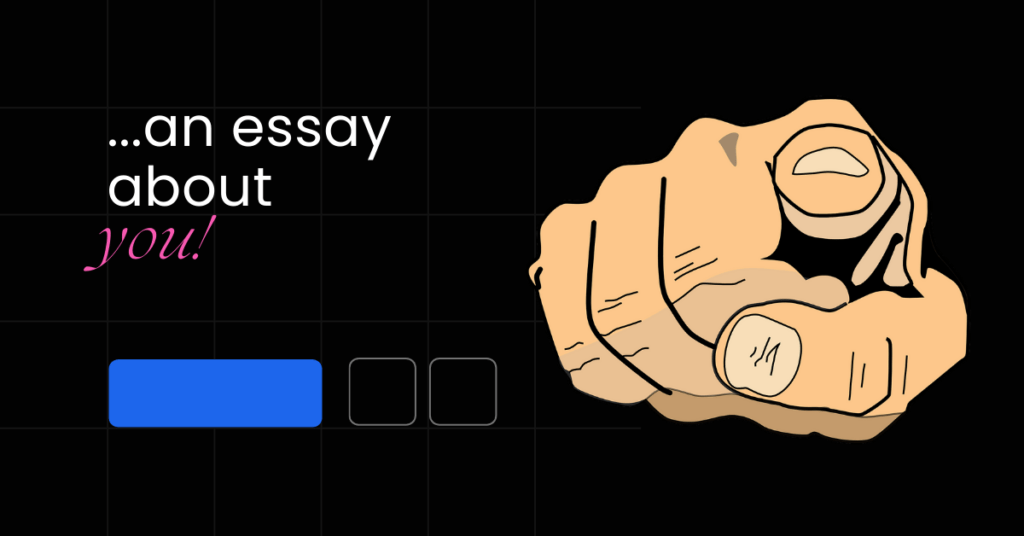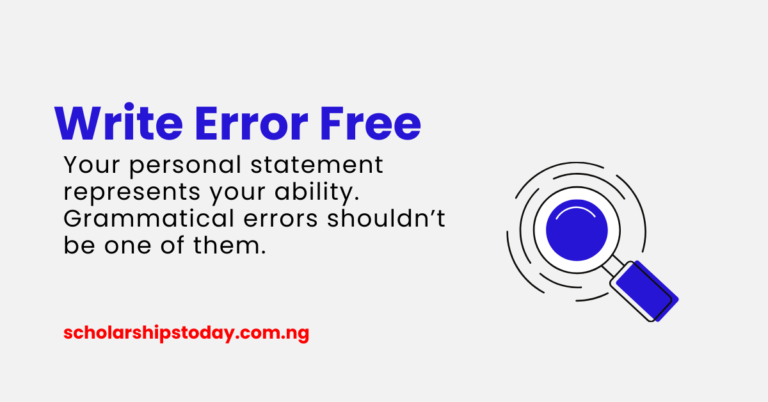Were you applying for a scholarship, and you are asked to provide a personal statement? Now you’re wondering, what is personal statement for scholarship?
Well, personal statements are usually requested as a prerequisite for a scholarship.
A personal statement for a scholarship is simply an essay about you, which I’ll discuss more in-depth as we progress.
Although not all scholarships require personal statements, a large number of them do.
Scholarships that often require personal statements include:
Merit-based scholarships: These awards recognize academic achievement, leadership qualities, or other exceptional talents. They often use personal statements to understand the applicant’s character, motivation, and future goals.
Need-based scholarships: These awards prioritize financial need but may also consider academic performance and personal circumstances. Personal statements can help applicants explain their financial situation and how the scholarship will impact their education.
Specialized scholarships: Awards based on specific interests, majors, or backgrounds often utilize personal statements to assess the applicant’s passion and commitment to the field.
What Is Personal Statement for Scholarship
A personal statement for a scholarship is a formal essay written by you (the applicant), sharing information about yourself, your background, achievements, goals, and why you feel you are the best fit for the scholarship.
Just imagine you are marketing a product, and that product is you!
It’s an essay telling the scholarship committee about those fine qualities you possess that should make them award the scholarship to you.

Usually, this personal statement has a word count limit. But, of course, there isn’t a one-size-fits-all word count.
So, it’s highly advisable to check the scholarship requirements. In the past, many scholarship instructions explicitly state a word count limit, ranging from 250 to 750 words.
Other things you might consider are the platform. Some scholarship platforms use built-in word limits, and you have to play by that rule or you get disqualified automatically for writing beyond the required word count.
From my experience, a certain type of scholarship may favor a more lengthy statement than others. For instance, a need-based scholarship focusing on financial details might require fewer words than other types of scholarships.
To be on the right side, meticulously study whichever scholarship you’re applying for to know the word limit. Then, while writing, aim for high-quality content rather than quantity. If you can say everything in fewer words, there’s no need to entertain more words.
As much as possible, eliminate verbosity and fluffy words.
Try not to appear a grammarian. A concise and impactful statement that effectively conveys your story within the allowed space is best.
Personal statement for Scholarship Word Count Guidelines:
Minimum: Generally, 250 words is a safe minimum to showcase your key strengths and aspirations.
Average: Many scholarships fall in the 500-750 word range, allowing for well-rounded storytelling and detailed achievements.
Maximum: If no limit is specified, consider 750 words the absolute maximum. Go beyond that only if necessary to deliver essential information.

FAQS on What is Personal Statement for Scholarship
What Should a Personal Statement Include?
A personal statement should include a personal introduction about yourself and then a body that includes your expansion on relevant skills, interests, and achievements. Also, your dreams, goals, and plans for a particular field. Lastly, it should include a conclusion summarizing everything that was written.
What Do You Write in a Scholarship Statement?
A scholarship statement should include why you are the best fit to be the candidate for the scholarship. It should present you as a person, a student, and also a potential scholarship recipient. It’s an opportunity for you to share your background, family, and academics, and to share any personal circumstances that hinder you from furthering in education and more.
How Do You Introduce Yourself in a Personal Statement?
For your introduction, try as much to create an introduction that paints a picture of you and your personality as a person. It should speak about why you need the scholarship and why you feel you are the best candidate. It should also include your experience with previous stages of your life.
How Do You Start a Personal Statement Example?
Start with a compelling personal statement that captivates your readers from the outset. Share a vivid anecdote, express genuine passion, or pose an intriguing question related to your field. This not only engages your audience but sets the tone for a captivating journey through your personal statement.
What Is the Best Line to Start a Personal Statement?
There are a lot of great lines that can be used to start up a personal statement but for the sake of this content. Check out these:
From a young age, I have…
I have great interest in….
The idea is to start with a line that creates an enthusiasm in your readers mind and would make them want to continue to read.
Final Thought
Remember that a personal statement is about you. So, it should carry your personal stories. In fact, don’t be afraid to share your story because that’s why it’s called personal statement.
Also, include extracurricular activities you’ve engage in that are meaningful to the scholarship essay like community service.
If you’re not an expert writer, you should learn how to write a strong personal statement. Whether it’s a personal statement for admission, a personal statement for a master’s program, or personal statement for PhD study.
You cannot wish that yours is better unless you know the qualities of winning personal statements because most examiners look at those qualities in evaluating the authenticity of your story.
As a rule of thumb, editing and correction need to be carried out extensively to present the best version of your statement. You can either pay a proofreader or editor to do that for you. Alternatively, you can use online grammar tools like Grammarly to grade your writing.
Also, make sure your sentence structure and punctuation usage are correct. Avoid the use of generic terms; be very specific and elaborate.






